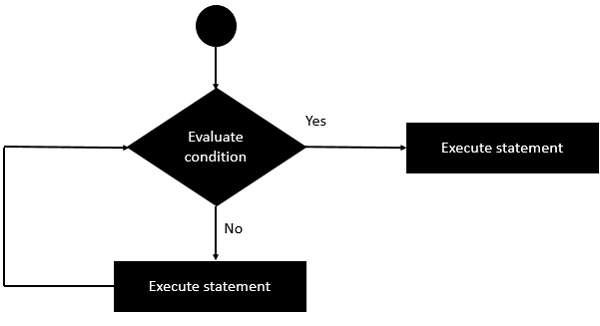
- Clojure - Home
- Clojure - Overview
- Clojure - Environment
- Clojure - Basic Syntax
- Clojure - REPL
- Clojure - Data Types
- Clojure - Variables
- Clojure - Operators
- Clojure - Loops
- Clojure - Decision Making
- Clojure - Functions
- Clojure - Numbers
- Clojure - Recursion
- Clojure - File I/O
- Clojure - Strings
- Clojure - Lists
- Clojure - Sets
- Clojure - Vectors
- Clojure - Maps
- Clojure - Namespaces
- Clojure - Exception Handling
- Clojure - Sequences
- Clojure - Regular Expressions
- Clojure - Predicates
- Clojure - Destructuring
- Clojure - Date & Time
- Clojure - Atoms
- Clojure - Metadata
- Clojure - StructMaps
- Clojure - Agents
- Clojure - Watchers
- Clojure - Macros
- Clojure - Reference Values
- Clojure - Databases
- Clojure - Java Interface
- Clojure - Concurrent Programming
- Clojure - Applications
- Clojure - Automated Testing
- Clojure - Libraries
Clojure - If Statement
The first decision-making statement is the if statement. Following is the general form of this statement in Clojure.
Syntax
if (condition) statement#1 statement #2
In Clojure, the condition is an expression which evaluates it to be either true or false. If the condition is true, then statement#1 will be executed, else statement#2 will be executed. The general working of this statement is that first a condition is evaluated in the if statement. If the condition is true, it then executes the statements. Following diagram shows the flow of the if statement.

Example
Following is an example of the simple if expression in Clojure.
(ns clojure.examples.hello (:gen-class)) ;; This program displays Hello World (defn Example [] ( if ( = 2 2) (println "Values are equal") (println "Values are not equal"))) (Example)
Output
The output of the above program will be Values are equal. In the above code example, the if condition is used to evaluate whether the values of 2 and 2 are equal. If they are, then it will print the value of Values are equal else it will print the value of Values are not equal.
Values are equal